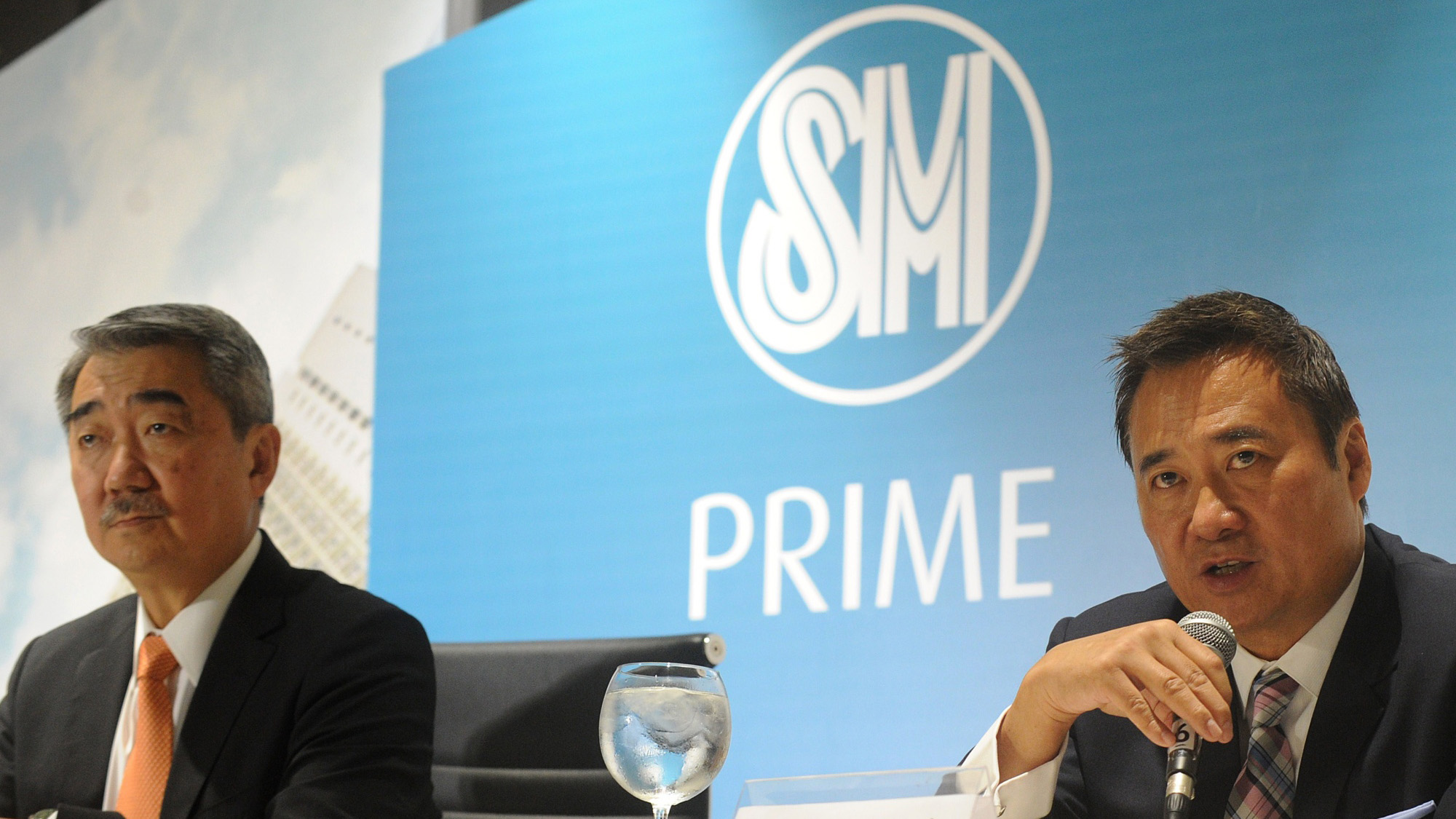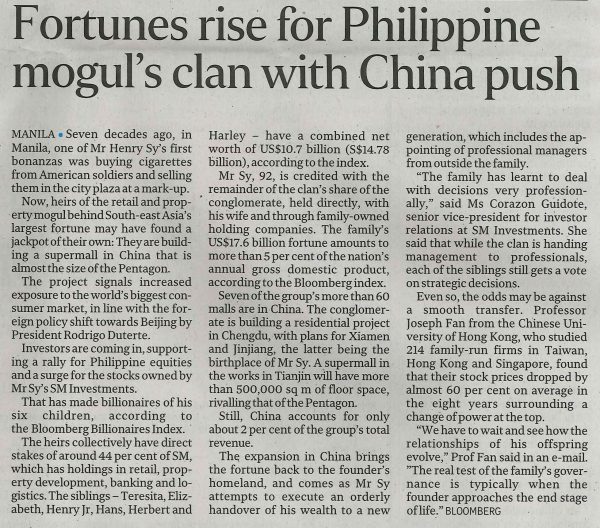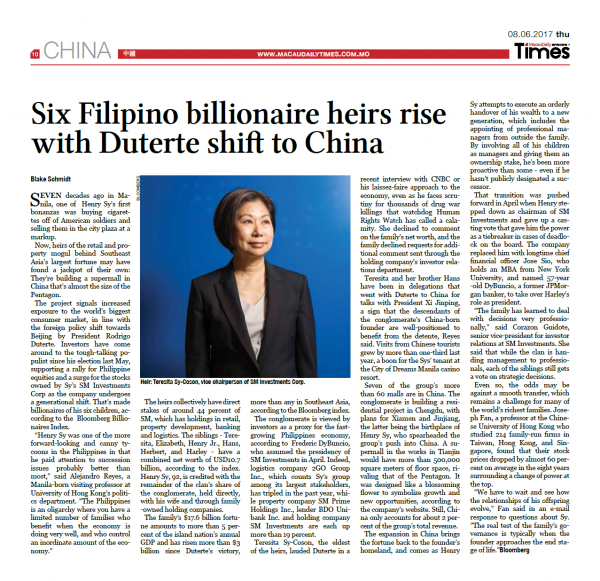Fortunes Rise for Philippine Mogul’s Clan with China Push

Filipino mogul Henry Sy’s company undergoes an orderly handover of his wealth to his six children. Prof. Joseph Fan told Bloomberg News that “the real test of the family’s governance is typically when the founder approaches the end stage of life.”
Seven decades ago in Manila, one of Henry Sy’s first bonanzas was buying cigarettes off of American soldiers and selling them in the city plaza at a markup.
Now, heirs of the retail and property mogul behind Southeast Asia’s largest fortune are building a supermall in China.
The project signals increased exposure to the world’s biggest consumer market, in line with the foreign policy shift towards Beijing by President Rodrigo Duterte. Investors have come around to the tough-talking populist since his election last May, supporting a rally for Philippine equities and a surge for the stocks owned by Sy’s SM Investments Corp as the company undergoes a generational shift.
The family’s US$17.6 billion fortune amounts to more than 5 percent of the island nation’s annual GDP and has risen more than US$3 billion since Duterte’s victory, more than any in Southeast Asia, according to the Bloomberg index.
The expansion in China brings the fortune back to the founder’s homeland, and comes as Henry Sy attempts to execute an orderly handover of his wealth to a new generation, which includes the appointing of professional managers from outside the family. By involving all of his six children as managers and giving them an ownership stake, he’s been more proactive than some – even if he hasn’t publicly designated a successor.
That transition was pushed forward in April when Henry stepped down as chairman of SM Investments and gave up a casting vote that gave him the power as a tiebreaker in cases of deadlock on the board. The company replaced him with longtime chief financial officer Jose Sio, who holds an MBA from New York University, and named 57-year-old DyBuncio, a former J.P. Morgan banker, to take over Harley’s role as president.
Even so, the odds may be against a smooth transfer, which remains a challenge for many of the world’s richest families. Prof. Joseph Fan, professor of the School of Accountancy and the Department of Finance and co-director of Center for Economics and Finance at the Chinese University of Hong Kong (CUHK) Business School who studied 214 family-run firms in Taiwan, Hong Kong, and Singapore, found that their stock prices dropped by almost 60 percent on average in the eight years surrounding a change of power at the top.
Prof. Fan said in an interview with Bloomberg News that “we have to wait and see how the relationships of his offspring evolve. The real test of the family’s governance is typically when the founder approaches the end stage of life.”… Read More
The Bloomberg story was widely reprinted by influential media publications around the world including The Straits Times from Singapore; BusinessWorld from the Philippines; and Macau Daily Times (PDF) from Macau.
This article was also translated into Chinese and posted on cnYES.com from Taiwan.
A version of this article appeared in the print edition of The Straits Times and Macau Daily Times on 8 June, 2017. Please click the image below to view the story.
Source: Bloomberg News / The Straits Times / BusinessWorld / Macau Daily Times
Date published: 7 June, 2017 (Bloomberg) / 8 June, 2017


Photo: Jay Directo/AFP via Getty Images

